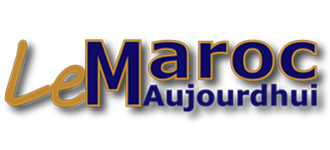Dernières Nouvelles
Page d'accueil
- Actualités locales, arabes et internationales
- Interviews Artistiques ou Culturelles/ Interviews d'artistes
- Les titres
- Sport
- Vidéos
- Célébrités
- Entrevues
- Affaires
- Mode
- Santé et Nutrition
- Vues & Analyses
- Presse
- Les infos les plus Lues
- Météo
- Evasion
- Autos
- Dessin animé
- Les Femmes à la Une
- Actu Stars & Personnalités
Sport
Culture
Business
Divertissement
Mode
Santé
Voyages et Evasion
Décor
The dots between pop art and Islam

Mai Mihaimeed
Hannah Habibi Hopkin is a London based artist whose work explores gender, religion and identity. Her current work turns traditional concepts of embroidery, as a romanticised pastime for a docile woman, into a "weapon of resistance" against gender constraints. Hopkin converted to Islam when she was 24 and has worn the hijab for several years. Born in Bristol in the United Kingdom, she grew up in London and became fascinated by Arab culture. Hopkin plays with seemingly mystifying Middle Eastern and North African topics and alters them into a recognisable Western mould – her choice of style – Pop Art. Her work is inspired by her experiences living as a white, blue-eyed woman wearing traditional Muslim dress in Britain. The many responses she received ignited the ideas for her paintings and photographs. "I find that people often project stereotypes upon you when you're wearing a scarf," she told the BBC. "Certain items of clothing, such as hijab and abaya, have become invested with such potent politicised symbolism – the wearer's personal identity becomes secondary to her outward appearance.” A political undertone certainly runs through my favourite piece by Hopkin. Although outwardly playful – with the use of bold bright colours – the adaption of the proverbial "see no evil, hear no evil, speak no evil" was influenced by the Egyptian uprising in 2011. The art work was inspired by the scenes of revolutionary slogans spray painted on the streets. Hopkins said of the piece: “The message is about censorship: it started off looking at the concept of state censorship, but also self-censorship, when people are too afraid or unable to speak." The artist’s recent work challenges the "virgin/whore" dichotomy. Women in burqa’s photographed in iconic 21st century poses and scenes aim to depict Hopkin’s belief that we can no longer separate the image of the burqa from the idea of oppression. “It doesn't matter whether you're from London or Kabul,” she says, women of all backgrounds are still being confronted by these contrasting attitudes. Hopkin intends to spark a better understanding of Muslim women in Western society, which she feels need better representation in the media and not to be simply talked about. Her art has been shown in the UK's major cities and is owned by a large number of international collectors. Some of her pieces can be viewed online at www.hannahhabibi.com The views expressed by the author do not necessarily represent or reflect the editorial policy of Arabstoday.
GMT 11:02 2013 Mercredi ,19 Juin
Among the hungry you can’t dream bigGMT 09:09 2012 Jeudi ,20 Septembre
Ray Charles vs Mohammed Abdel WahabGMT 18:22 2012 Jeudi ,05 Janvier
The Devil Wears Underwear

Sources de grogne sociale
Mines et pétrole, richesses du Pérou
Lima - Maroc Aujourdhui
Les conflits sociaux autour de projets miniers et pétroliers s'intensifient au Pérou, provoquant l'inquiétude du gouvernement et des secteurs industriels qui craignent pour les investissements dans ce secteur-clé de l'économie
Paris-Roubaix
Les quatre clés de la 'reine'
Compiègne - Maroc Aujourdhui
Paris-Roubaix se joue dimanche au gré des 27 secteurs pavés qui parsèment les 253,5 kilomètres du parcours. Mais, pour le directeur de course Thierry Gouvenou, quatre d'entre eux sont des moments-clés: Troisvilles, Arenberg, Mons-en-Pévèle et le Carrefour de l'Arbre. .Calories contre beuveries
La bataille s'engage à Bruxelles
Bruxelles - Maroc Aujourdhui
Jouer l'atout minceur pour lutter contre beuveries et alcoolisme: le projet d'étiqueter les calories des bières, vins et whisky fait son retour en Europe, mais reste confronté à la résistance des pays viticoles et des lobbies. Le Parlement européen aBoss Bespoke : autopsie d’un sac
Casablanca - Le Maroc Aujourd’hui
« Est luxueux tout ce qui n’est pas indispensable mais délectable s’il est sensible à la grâce » affirmait l’économiste et écrivain Jean Castarède. Une définition qui sied parfaitement au monde des accessoires, et particulièrement des sacs, chouchous des maisons de mode. On a voulu en savoir plus sur la genèse de l'un de ces objets du désir. Jason Wu, le directeur artistique de Boss, nous a accompagnés. Durant vingt ans, de 1994 à 2013, les ventes mondiales de maroquinerie ont connu des hausses annuelles de 8 à 11%, soit plus du double que le reste du marché du luxe (1) et ce, malgré la crise. Outre une avidité à ouvrir ce qui est considéré comme l’une des portes d’entrée du luxe, la raison de cette croissance insolente était due à une offre grandissante. De la plus petite marque à la plusMaintained and developed by Arabs Today Group SAL.
All rights reserved to Arab Today Media Group 2025 ©
Maintained and developed by Arabs Today Group SAL.
All rights reserved to Arab Today Media Group 2025 ©







.jpg)















